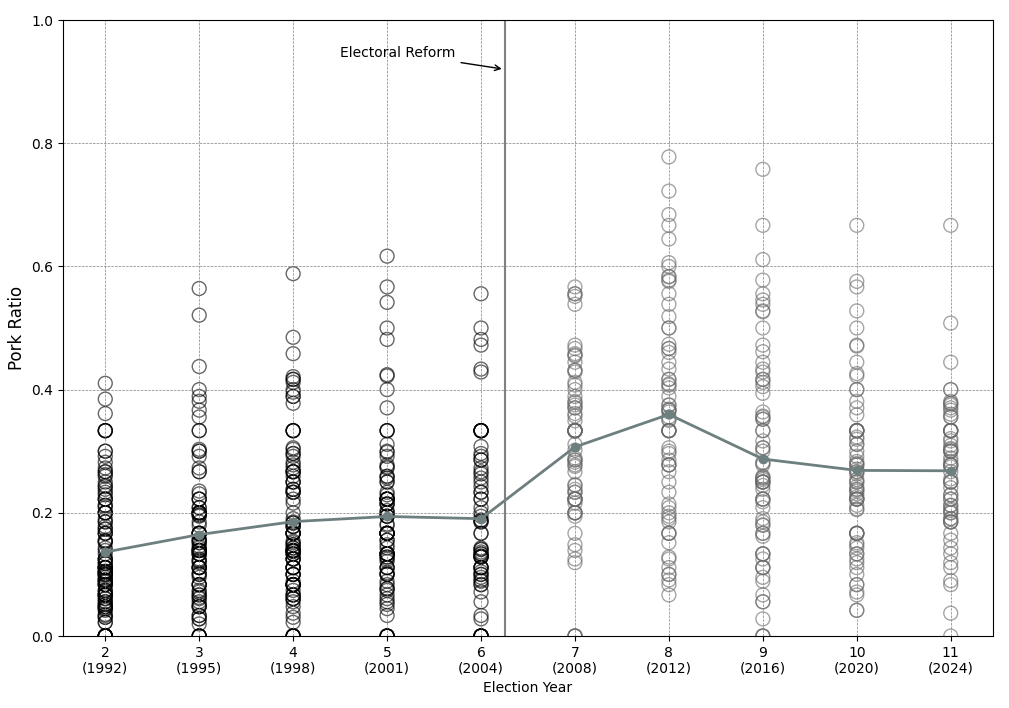Abstract
In the field of political science, the reform of electoral systems has long been an important research issue. Past literature has provided diverse theoretical foundations and causal mechanisms regarding the legislative behavior of legislators or voter behavior. However, there is little research on how changes in the electoral system affect pre-election campaign behavior.
Some researchers have found that when Japan's electoral system shifted from a single non-transferable vote (SNTV) system in multi-member districts (MMD) to a relative majority system in single-member districts (SMD), candidates' campaign strategies tended to focus more on national policies and they proposed more programmatic policy platforms. However, this study argues that due to differences in constitutional systems, institutional designs, and social expectations of legislators across countries, as well as the reduced district magnitude and decreased heterogeneity within districts, Taiwanese regional legislators would tend to propose more policies favorable to district interests, i.e., pork barrel legislation would become more pronounced after the electoral reform.
To test this hypothesis, this study utilized election platforms from the Central Election Commission to compile data from the 2nd to the 11th legislative elections in Taiwan. Topic modeling was used to analyze the similarity between election platforms and policy proposals. Moreover, this research leveraged deep learning, artificial intelligence, and prompting engineering techniques, including Least-to-Most and Chain-of-Thought prompting, to automate the generation of classification judgments, reducing subjectivity issues from manual judgments in prior research.
The findings show that after the 2005 electoral reform, due to smaller district magnitudes and increased homogeneity, the increased voter accountability in the new system without intra-party competition, and greater voter recognition of individual legislators, KMT and DPP candidates had stronger incentives to propose district-oriented policies and cultivate personal votes in single-member districts. In contrast, smaller party candidates were less affected by the electoral change as their competitive environment did not significantly change, still facing pressure from KMT and DPP opponents. These changes were statistically significant.
In summary, this study verified the impact of the electoral system on the campaign strategies of Taiwanese legislative candidates and revealed that the electoral system is not the sole influencing factor. However, due to data limitations, this research could not infer the causal mechanisms of other factors such as the constitutional system, nomination rules, or voter expectations on candidates' strategies. Additionally, this study constructed a database covering election platforms from the 2nd to the 11th legislative terms, providing resources for future research.
Technical Skills: Python (BERTopic, Claude, OpenAI, Pandas, Scikit-learn), Git, LATEX
The source code and results are available for exploration via the link provided below.
